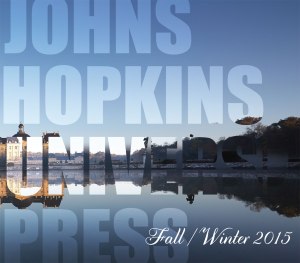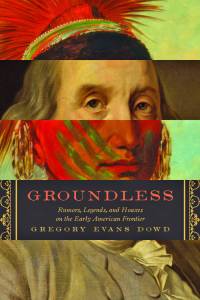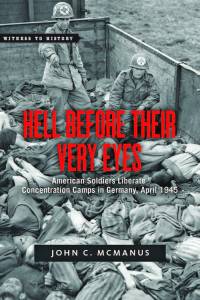Guest post by Len Travers
 If Robert Wilson had done what he did today instead of in 1756, they would have given him a medal. That year, September 19 was a Sunday. On that sweltering late-summer afternoon Wilson and nearly fifty other New England soldiers were scouting the rocky, wooded shore of Lake George in New York Colony when they walked into an ambush. Their assailants, Indian and French Canadian raiders three times their numbers, quickly overwhelmed the trapped colonials. Early in the fighting a bullet found Wilson, punching clean through his shoulder. Unable to fight, he somehow broke through the melee and ran for all he was worth eleven miles through the rugged forest back to Fort William Henry, where his doomed patrol had begun. Exhausted from blood loss and dehydration, he gasped out the news, less than three hours old, of what had befallen his companions. Unless help came to them soon, he feared that his company “could not escape” and that “the whole Scout would be Cut of[f].” For all he knew, he was the only one to escape alive.
If Robert Wilson had done what he did today instead of in 1756, they would have given him a medal. That year, September 19 was a Sunday. On that sweltering late-summer afternoon Wilson and nearly fifty other New England soldiers were scouting the rocky, wooded shore of Lake George in New York Colony when they walked into an ambush. Their assailants, Indian and French Canadian raiders three times their numbers, quickly overwhelmed the trapped colonials. Early in the fighting a bullet found Wilson, punching clean through his shoulder. Unable to fight, he somehow broke through the melee and ran for all he was worth eleven miles through the rugged forest back to Fort William Henry, where his doomed patrol had begun. Exhausted from blood loss and dehydration, he gasped out the news, less than three hours old, of what had befallen his companions. Unless help came to them soon, he feared that his company “could not escape” and that “the whole Scout would be Cut of[f].” For all he knew, he was the only one to escape alive.
He wasn’t, but Wilson’s harrowing story was one of many I found in the course of researching Hodges’ Scout, in which I attempted to recover a long-forgotten incident of the French and Indian War. Part of that story follows the fates of survivors, such as the twenty-two-year-old Wilson. Those who made it home, some after years of captivity, found nothing like the welcome, support, and admiration veterans receive today. Wilson spent the ensuing months slowly recovering from the “Grate pain” of his wound. And there was the expense: he had been forced to pay his own way home to Lexington, Massachusetts, and despite (or because of) medical care he “Remained Lowe with his wound all the winter.” After five months he was finally able to do some work, but “he [had] not the use of his showlder so well as he had nor [feared] he Ever shall.” As did so many other injured veterans of the French and Indian War, Wilson was forced to ask for public assistance from his colony government. It took more than two years from the time he was shot, but Wilson was awarded £6—less than half a year’s wages—“in full for his Service and Sufferings,” but the once-hardy young man, now a disabled veteran, would never be the same again.
Such token awards from cash-strapped colonial governments were typical, and if wounded veterans felt short-changed, the families of the hurt, killed, and missing fared little better. Widows often received little from their husbands’ estates (most soldiers died too young to have accumulated much), and remarriage was not always in the cards. Children went without, or were put to servitude for their support, breaking up what was left of families. Harder though not impossible to evaluate is the emotional toll on families rent by war. John Lewis had marched that day with Wilson, but was feared dead. His family moved quickly to administer his pitiful estate, but Lewis’ aged mother Hannah refused to give up on him, writing her “Beloved Son John Lewis if he be living,” into the will she made out the year following.
Hannah Titus was also a grieving mother. Her husband had died early in 1756; she then permitted her seventeen-year old son Benjamin to go for a soldier that year, probably counting on his soldier’s wages to help the family. He enlisted in the same company as his older brother Noah, and together they set off for Lake George. But Benjamin was killed in the same firefight that crippled Robert Wilson, and Noah died from disease soon after. By the end of December Hannah Titus was pleading with a judge to appoint an administrator for the estates of Benjamin, Noah, and their spinster sister Hepzibah, who also had died that year. Robbed of husband and children after a year of cruel loss, guilt-stricken over letting her last son go to war, Hannah understandably felt “not able to do such business myself.”
Recent events remind us that the “social safety net” constructed for modern veterans and their families has often provided too little, and too late, for too many. But in exploring the American past we confront societies for which such things were, comparatively, nonexistent—as the survivors of Hodges’ Scout so tragically learned.
Len Travers is a professor of history at the University of Massachusetts Dartmouth. He is the author of Celebrating the Fourth: Independence Day and the Rites of Nationalism in the Early Republic and Hodges’ Scout: A Lost Patrol of the French and Indian War, which will be published by JHU Press later this year.
Use promo code “HDPD” to receive a 30% discount when you place your pre-publication order for Hodges’s Scout.









You must be logged in to post a comment.